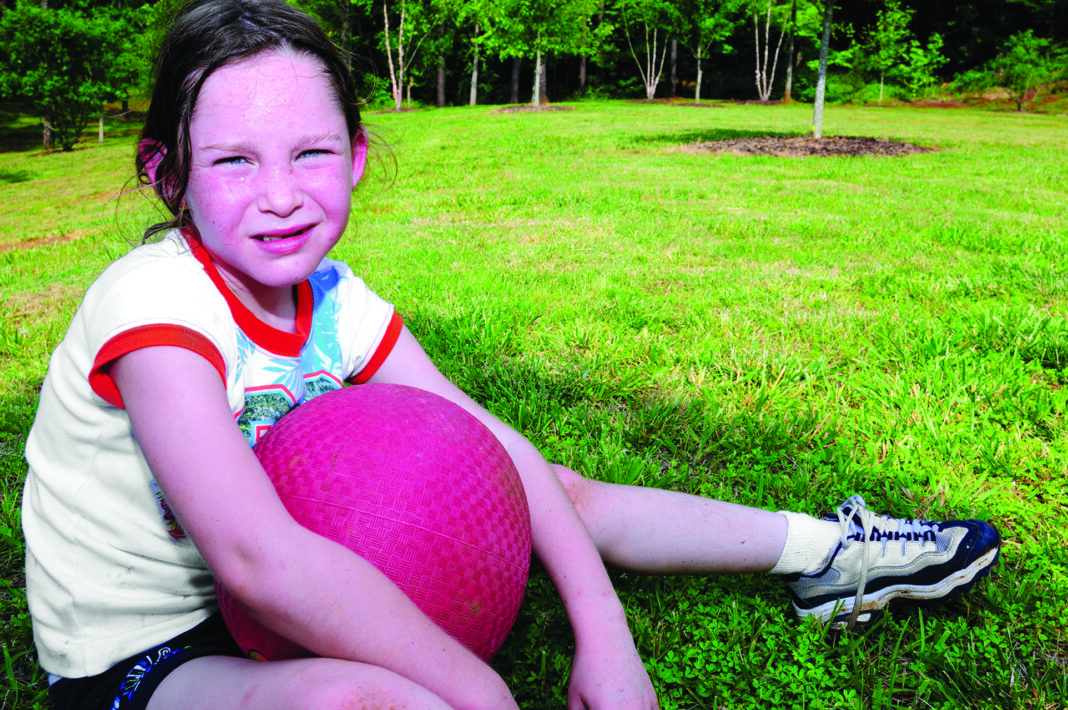By Dr. Dele Davies | American Academy of Pediatrics
Q: My kids like being outside, even when it’s really hot. Is it safe for them?
A: When weather conditions do not pose a health risk, children can and should spend time outside. Playing outdoors can boost a child’s physical and mental health in many ways.
But a heat index at or above 90 degrees Fahrenheit, as identified by the National Weather Service, poses a significant health risk.
High temperatures and extreme heat can cause children to become sick very quickly in several ways. It can cause dehydration, heat exhaustion, heat cramps and heat stroke, which is a medical emergency. High heat can also contribute to irritability for children and their caregivers. And with extreme heat increasing in areas of the United States due to climate change, “eco-anxiety” can cause emotional distress as well.
To protect your child from the heat as much as possible, watch for symptoms, and call your pediatrician if you see any develop.
When it’s very hot and/or humid, going to the swimming pool or beach for a short time or staying inside and working on crafts or reading or playing board games makes the most sense. Plan ahead if you know there will be many consecutive days of high temperatures, so that you can expect the need to be creative and help children rotate and vary their activities (to avoid “cabin fever” or restless/irritable feelings). Find ways for kids to stay active by suggesting some easy yoga stretches or playing indoor hide and seek or making up fun physical challenges that aren’t too strenuous.
>> If your home does not have air conditioning, find a nearby building that does. Libraries and shopping malls can be great places for a cool retreat from the heat. If you live in a place where there are frequent power outages or your air conditioning is unreliable, identify a safe place for your family to go when temperatures are very high. Many towns and cities have cooling centers in gyms, community centers, and other large buildings for those who need relief from the heat.
>> While at home, close your window blinds and curtains. Lower floors tend to be cooler because heat rises. Fans may be helpful in cooling down if you have no access to air conditioning. If you do use a fan, keep it at a safe distance from you and your children to avoid safety hazards (pinched fingers or fans connecting with water). Fans that blow directly on you can dry out your mouth and nostrils, or if you suffer from allergies, fans may circulate allergens that cause your nose to run and your eyes to itch.
>> Fans should never be used in extreme heat (high 90s or above) because they do not cool the air, and using fans when temperatures are higher than body temperature may cause the body to gain instead of lose heat.
If you are going to be outside when it’s warm, there are several steps you can take to beat the heat and protect your child from heat-related illness and hazards:
>> Stay hydrated: Encourage your children to drink water frequently and have it readily available — even before they ask for it. Take water bottles with you if you go out. On hot days, infants receiving breast milk in a bottle can be given additional breast milk in a bottle, but they should not be given water, especially in the first 6 months of life. Infants receiving formula can be given additional formula in a bottle.
Dress lightly: Dress your children in clothing that is light-colored, lightweight, and limited to one layer of absorbent material that will maximize the evaporation of sweat. Kids have a lower capacity for sweating than adults. Be sure to use plenty of sunscreen.
Plan for extra rest time: Heat can often make children (and their parents) feel tired. High heat can not only cause people to feel tired, but it may also contribute to irritability. Come inside regularly to cool off, rest, and drink water.
Keep your cool: When your child is feeling hot, give him or her a cool bath or water mist to cool down. Swimming is another great way to cool off while staying active. Remember that children should always be supervised while swimming or playing in water to prevent drowning.
Never leave your child in a car: The interior of a car can become dangerously hot in just a short amount of time, even with the windows open.
Dr. Dele Davies is a member of the American Academy of Pediatrics Council on Children and Disasters Executive Committee. For more information, go to HealthyChildren.org, the website for parents from the AAP.
ADDITIONAL INFORMATION:
By Tami Cupples-Hernandez | Staff Writer
Dr. Athanasi Orfanos, a pediatrician with clinics in Pharr, Edinburg and Mission, agrees that outdoor play activities should be suspended until temperatures are lower than 90 degrees Fahrenheit.
“Especially those kids that are training for sports, especially high school,” Orfanos said. “I always recommend to be hydrated before sports. At least 1 liter (of electrolytes), and also during and after.”
While it is possible for Valley children to become acclimated to the region’s extreme temperatures, it’s also important to make preparations for all ages of children.
“Take all the precautions – clothing, water, and wait until the late hour,” Orfanos said. “Definitely not between 12 and 4 (p.m.).”
KNOW THE WARNING SIGNS:
Call your pediatrician immediately if your child develops any of the following symptoms:
>> Feeling faint
>> Extreme tiredness (unusually sleepy, drowsy, or hard to arouse)
>> Headache
>> Fever
>> Not urinating for many hours
>> Intense thirst
>> Nausea
>> Vomiting
>> Breathing faster or deeper than normal
>> Skin numbness or tingling
>> Muscle aches
>> Muscle spasms
Don’t hesitate to contact your child’s pediatrician for other guidance on how to protect them in extreme heat.




